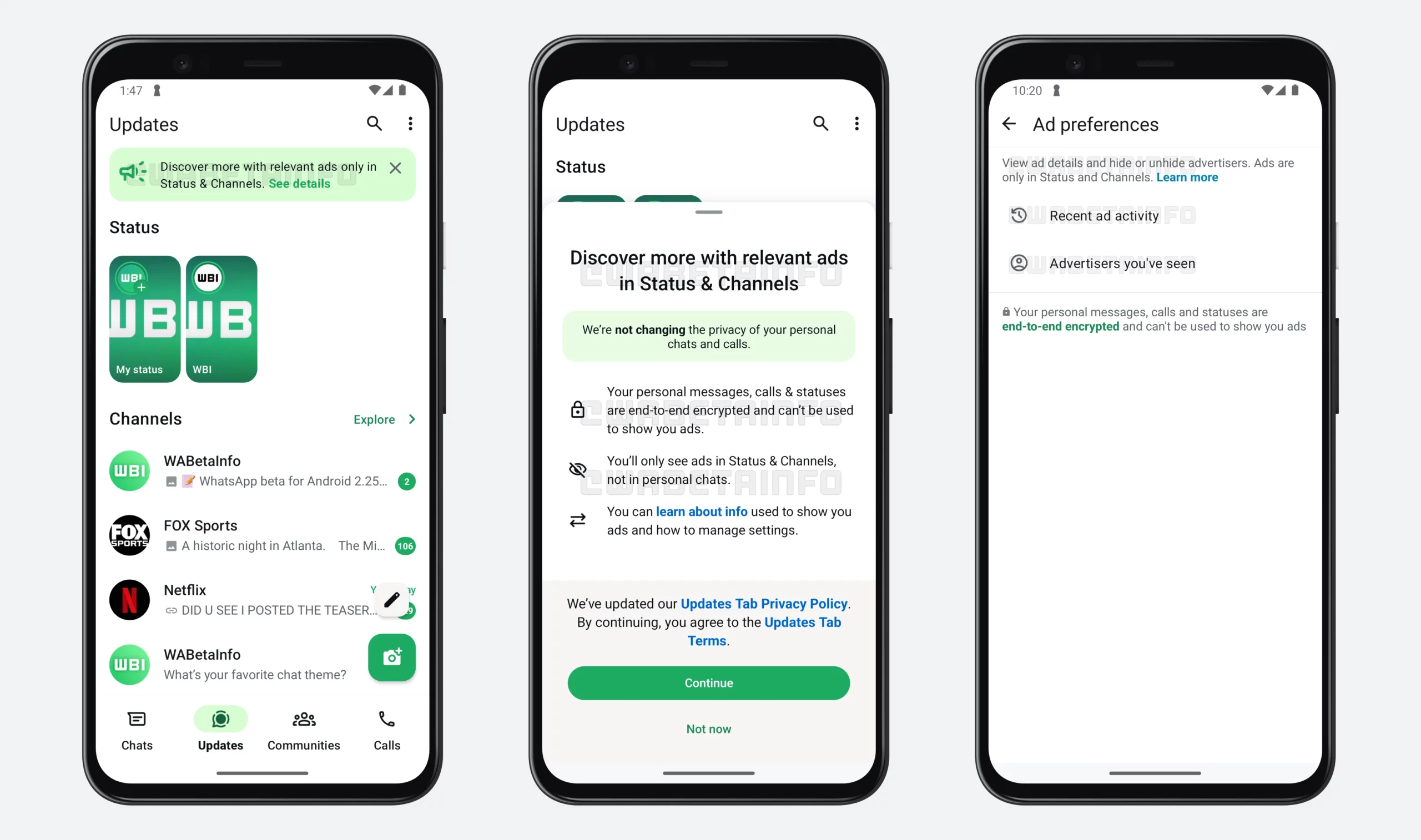WhatsApp, under the Meta umbrella, has taken a significant step toward diversifying its revenue model. Some users who installed the Android beta version 2.25.21.11 on the Google Play Store were greeted with a new banner appearing in the Updates tab. This banner announces two new advertising features integrated into the app: Status Ads and Promoted Channels. This move represents the first concrete example of how WhatsApp will integrate sponsored content into the platform.
How will the WhatsApp advertising app work?
WhatsApp appears to have carefully structured its ads to minimize user experience. Here are the details of the new features:
- Status Ads: These ads, which will appear between the status posts of people users follow, will be short and vertical. While they may look like a standard status update, they will carry a label indicating sponsored content. Users can quickly navigate past these ads in less than a second and, if they wish, have the option to block the advertiser and stop seeing ads from that brand.
- Promoted Channels: This feature aims to help content creators, brands, and organizations showcase their channels to a wider audience. A promoted channel will appear highlighted in the directory when users discover new channels. Just like Status Ads, these promotions will be presented with a label indicating they are sponsored.

WhatsApp is committed to ensuring users’ privacy, a top concern. According to the statement, ads will only appear in the “Updates” tab. Personal chats, group conversations, searches, and communities will be ad-free and will continue to be protected with end-to-end encryption.
- A new feature called “Activity Report” is also being introduced to give users full control over their ads. This report will allow users to:
- A list of all ads they’ve seen recently.
- Block unwanted advertisers directly from this screen.
- If they change their mind later, they can unblock blocked advertisers.
- They can download this report in ZIP format and have it automatically generated monthly if they wish.
How Will Ad Targeting Be Done?
The platform emphasizes that the content of personal messages, calls, or status updates will not be accessed for ad targeting. The data used to determine who will be shown ads is quite limited:
General location information, such as country or city.
The user’s preferred language in the app.
The channels they follow and the ads they’ve interacted with in the past.
These new ad features are currently available only to a limited number of beta testers. WhatsApp is expected to gather user feedback to optimize the system and ensure a smooth transition before rolling it out to a wider audience.













